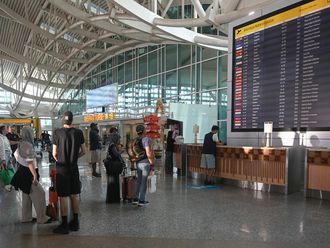Dhaka: Bangladesh's apex court has declared ‘fatwas' or Islamic edicts legal, but also imposed a strict bar on punishments.
"No person can pronounce a fatwa which violates or affects the rights or reputation or dignity of any person which is covered by the law of the land," said the appellate division of the Supreme Court headed by chief Justice ABM Khairul Haque partly modifying an earlier High Court judgement.
It added: "[A] fatwa on religious matters only may be given by the properly educated persons which may be accepted only voluntarily but any coercion or undue influence in any form is forbidden."
No punishment
The judgement further pointed out that "no punishment including physical violence or mental torture in any form can be imposed or implicated on anybody in pursuance of [a] fatwa."
The apex court judgement came after a hearing over a petition by two Islamic scholars against last year's High Court verdict declaring fatwas illegal.
While reviewing the High Court judgement the top court appointed a number of senior lawyers as ‘amii curiae' (friends of the court) to listen to their opinions on the matter while several of them suggested fatwas could be regarded simply as ‘opinions of religious scholars.'
Brutal tortures
The High Court order in July last year ruled as a criminal offence the handing down of punishments such as caning or beating in the name of a fatwa.
"Any person who issues or executes such an extrajudicial penalty must be punished for committing a criminal offence," said rights groups at that time following a series of newspaper reports on brutal tortures particularly of women through fatwas handed down by village clerics.
It said infliction of brutal punishment including caning, whipping and beating by persons devoid of judicial authority constituted violation of the constitutional rights and particularly directed the authorities concerned to take punitive action against the people involved in enforcing fatwas against women.












